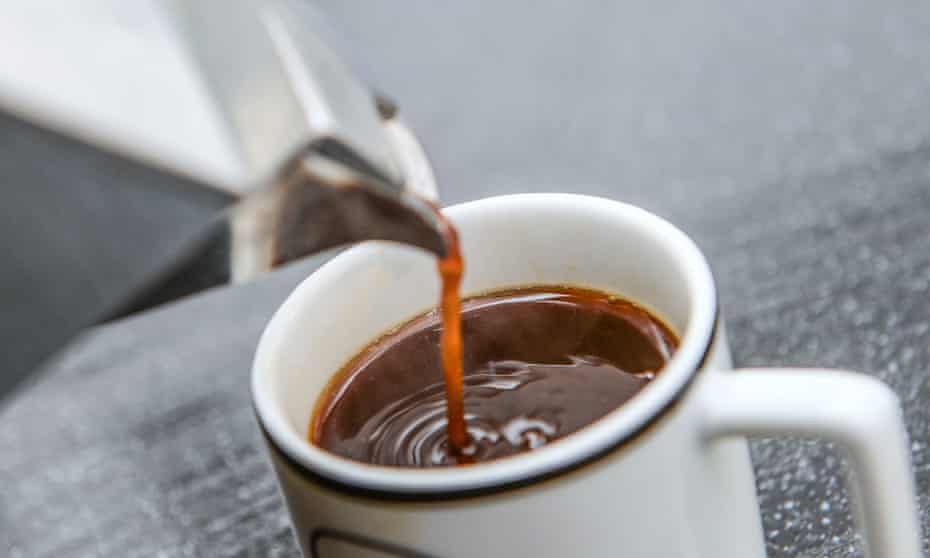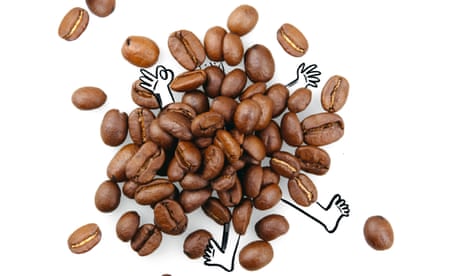But I'm doing it for the Parkinsons and dementia prevention. And since there is no defined amount for those I'm doing 10-12 cups a day.
But I want to know how many cups of coffee to prevent Parkinsons and dementia! Regular or decaf? What size cup? WHOM WILL BE DOING THAT RESEARCH?
Regular consumption of two to three cups of coffee per day could lower CVD risk
How coffee protects against Parkinson’s Aug. 2014
Coffee May Lower Your Risk of Dementia Feb. 2013
And this: Coffee's Phenylindanes Fight Alzheimer's Plaque December 2018
The latest here:
Coffee drinkers may be at lower risk of early death, study suggests
Even people who take sugar seem at lower risk, say experts, but results may be due to coffee drinkers being more affluent

Mon 30 May 2022 17.00 EDT
Last modified on Tue 31 May 2022 00.10 EDTPeople who drink coffee – whether with or without sugar – appear to have a lower risk of an early death, although experts caution the finding may not be down to the brew itself.
About 98m cups of coffee are drunk every day in the UK, according to the British Coffee Association, with the National Coffee Association revealing that in the US the figure is about 517m cups.
Previous studies have suggested the beverage may be beneficial to health, with coffee drinking associated with a lower risk of conditions ranging from chronic liver disease to certain cancers and even dementia.
Now researchers in China have found people who consumed a moderate amount of coffee every day, whether sweetened with sugar or not, had a lower risk of death over a seven-year period than those who did not.
Similar results were found for instant, ground and decaffeinated coffee.
The study, published in the Annals of Internal Medicine, is based on data from more than 171,000 participants of the UK BioBank – which has collected genetic, lifestyle and health information from more than 500,000 people since it began in 2006, including details of participants’ coffee-drinking habits.
The team used data from death certificates to track the participants for a median period of seven years from 2009, during which 3,177 people died.
After taking into account factors including age, sex, ethnicity, educational level, smoking status, amount of physical activity, body mass index and diet, the team found that, compared with those who did not drink the brew, people who consumed unsweetened coffee had the lowest risk of death.
The greatest reduction, a 29% lower risk of death, was seen for those drinking between 2.5 and 4.5 cups a day.
Reductions in the risk of death were also seen for coffee sweetened with sugar, at least for those drinking between 1.5 and 3.5 cups a day. The trend was less clear for people who used artificial sweeteners.
However, the study questioned participants about coffee drinking and other habits only once, and relied on self-reporting. Most of those who used sugar added only a spoonful to their drink – meaning it is unclear if the results would hold for speciality coffees with a high sugar content.
Naveed Sattar, a professor of metabolic medicine at the University of Glasgow who was not involved in the work, cautioned that the findings – while intriguing – were not clear-cut.
“The observational nature of this new study means these conclusions are far from definitive,” he said.
“This is because coffee drinkers are in general more affluent and have healthier lives than non-drinkers and I remain unconvinced whether these factors can be overcome in observational studies.” Prof Sattar added that genetic evidence did not link coffee to any important health benefits.
“I would suggest people stick to coffee or tea, preferably without sugar, which most people can adapt to, and try to do all the other things we know keep you healthy – move more, eat and sleep better.”
In an accompanying editorial, Dr Christina Wee, deputy editor of the journal, agreed the findings were not conclusive. But, she added, it did appear that drinking coffee, whether unsweetened or with modest amount of sugar, was probably not harmful for most people.
“So drink up – but it would be prudent to avoid too many caramel macchiatos while more evidence brews,” she wrote.

No comments:
Post a Comment